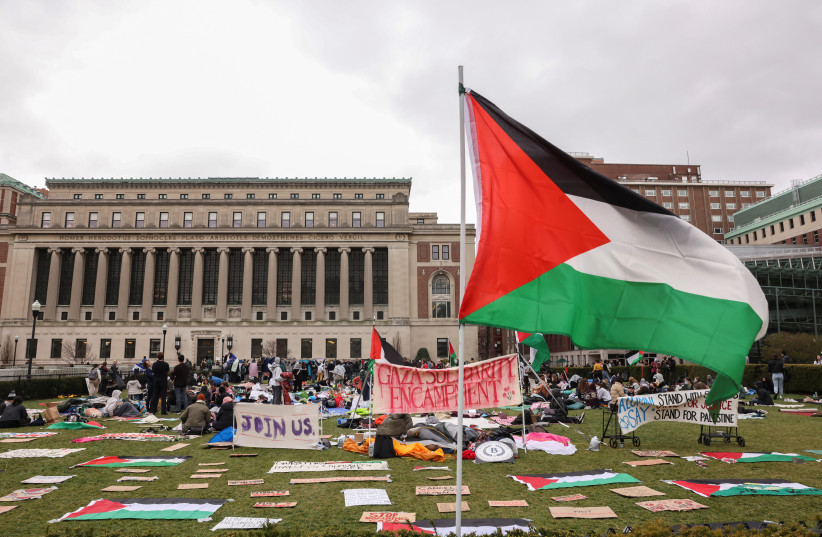"This will happen not one more time but 10,000 more times!" With these words echoing the harrowing past, Amichai Chikli, Israel's Minister of Diaspora Affairs and Combating Antisemitism, began a letter to dozens of presidents of US universities in which the violent encampments against Israel took place. He quoted anti-Israel protesters who yelled this quote at Jewish students. Chikli has drawn a stark parallel between the recent surge in antisemitism on US college campuses and the cruel treatment of Jewish students in the 1930s.
In a poignant letter dated May 2, 2024, addressed to US university leaders, Chikli describes an "alarming and dangerous radical rise" in antisemitic incidents, which have soared by an astonishing 700% since October 2023.
Chikli describes Columbia's events
Chikli’s communication cites disturbing events at institutions like Columbia University, the University of Michigan, and Princeton University, where students have faced shouts, banners, and displays that revive antisemitic rhetoric and symbols not widely seen since the pre-World War II era.
At Columbia, students were subjected to threats and exclusionary chants, while at Michigan, banners proclaimed "LONG LIVE THE INTIFADA," and at Princeton, Hezbollah flags were unfurled.
The letter forcefully calls on university leaders to fulfill their "moral obligation" to ensure a safe and inclusive environment.

Chikli condemns the current state of affairs, noting that "Jewish students and faculty are scared for their physical safety. They are harassed, isolated, and attacked; they are forced to hide or leave campus in fear."
Echoing the urgency for immediate action, Chikli states, "Inaction in the face of this growing threat is complicit in perpetuating this toxic environment."
He calls for an unequivocal condemnation of antisemitic rhetoric and behavior, clarifying that "free speech does not include the active support of terrorism, incitement, and harassment, or threats of violence against people."
Moreover, Chikli urges the adoption of the IHRA working definition of antisemitism and demands the shutdown of violent protests alongside the implementation of proactive measures and policies.
He insists on robust support and resources for Jewish students, asserting they "deserve to be and feel safe and supported in their academic environments, especially now."
Concluding his letter, the minister implores educational leaders to adopt a zero-tolerance stance towards antisemitism, urging, "The time is now!" As the call for action resonates across academic and diplomatic circles, the response of US universities will be crucial in determining the safety and inclusivity of their campuses going forward.
Recent reports from the Jerusalem Post highlight ongoing concerns about antisemitism on Ivy League campuses. Columbia University, for instance, is under investigation for its handling of antisemitic incidents, with allegations spanning over two decades.
In response, Columbia and other Ivy League schools, such as Harvard and the University of Pennsylvania, have initiated task forces and advisory groups to address these issues.
These actions come after a marked increase in complaints about the lack of sufficient protective measures for Jewish students and inadequate condemnation of antisemitic violence.
Amidst this backdrop, the global community, particularly stakeholders in higher education, are watching closely how these prestigious institutions are responding to these serious concerns.
